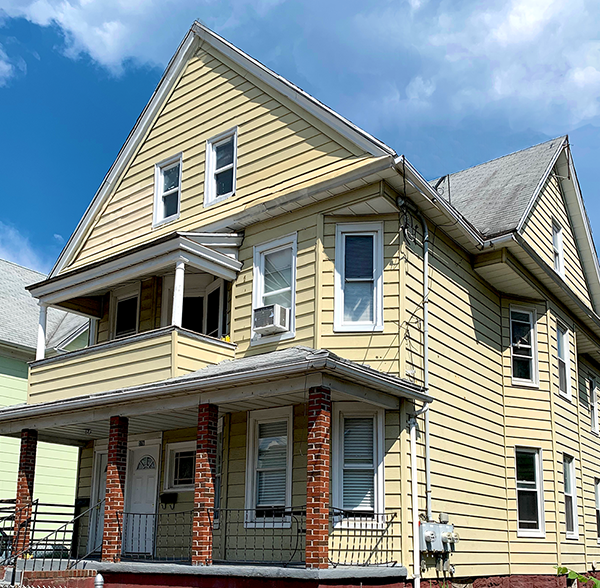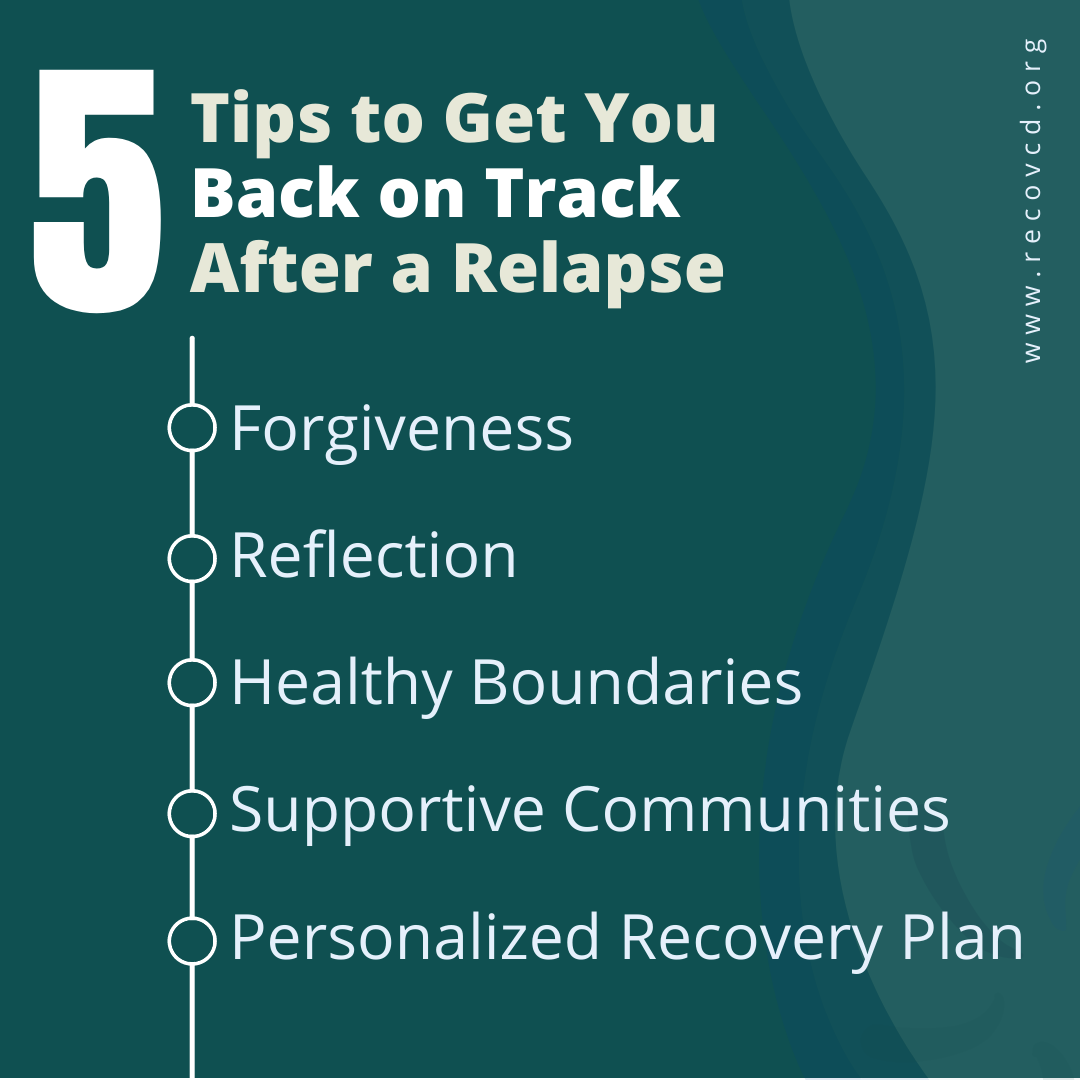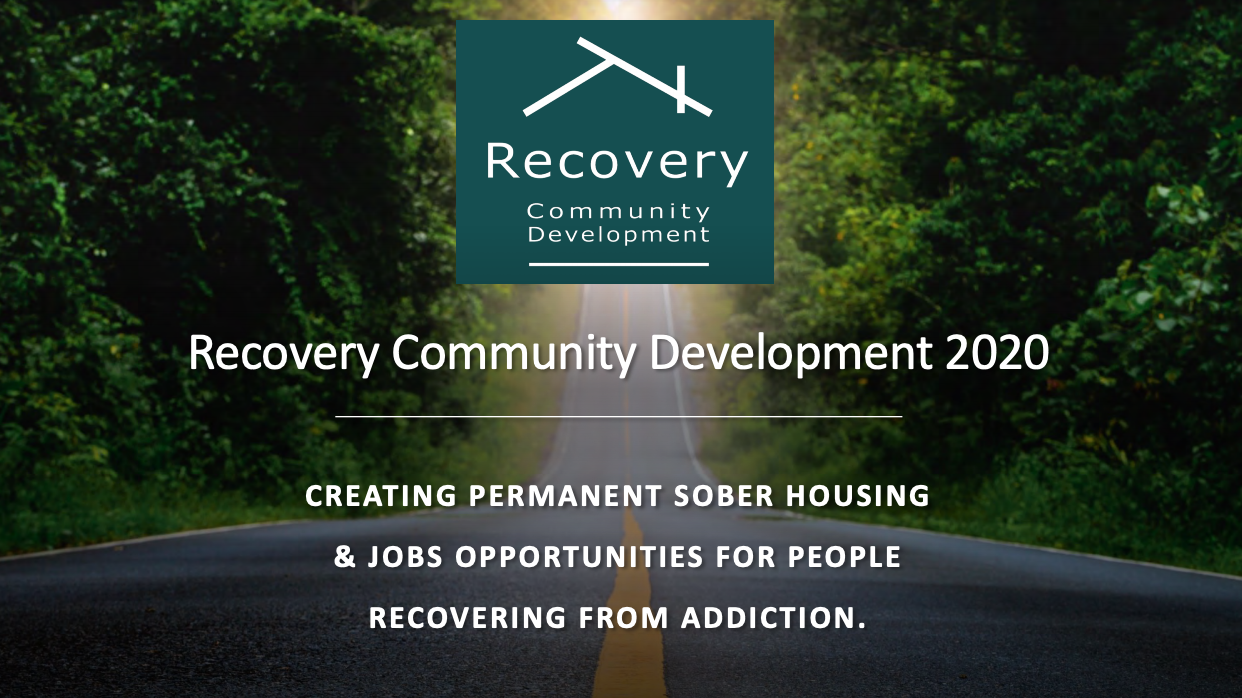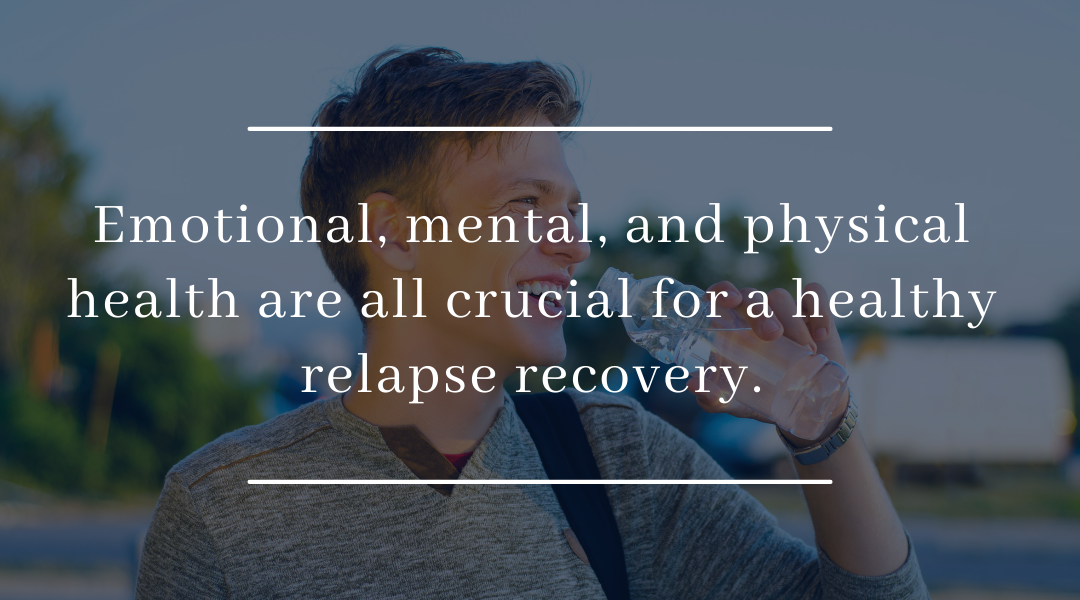Recovery is never a straight line. Every journey on the road towards sobriety is bound to be filled with ups and downs throughout, and yes, sometimes that includes a relapse. In fact, it quite often does. According to the National Institute of Health, 40-60% of people in recovery will relapse at least once. So, the first thing to keep in mind, as with all aspects of recovery, is that you are not alone.

Recovery Community Development is working hard to provide safe, affordable, sober housing opportunities for individuals in recovery, but we can’t do it alone.
Our current project, the Brooks Street House, is under construction now, and will be able to meet the housing needs of nine more men in recovery. Every donation makes a very big impact. Give Today.
With so many people dealing with the challenges of addiction and maintaining recovery, it should come as no surprise that relapses can look different for everyone. For some, it may well be just one single sip. For others, that “one single sip” may descend into a week-long bender. The point is: there is no substance in any quantity that is going to solve whatever may have brought someone to relapse.
Substance use disorders often come down to an issue of mental health. The relapse process is actually split into three different stages: emotional, mental, and physical. It isn’t until the third stage that substances even become part of the equation. Ideally, you want to be monitoring yourself for signs of emotional and mental relapse and make changes early before a physical relapse can occur. Of course, that’s easier said than done.
Depending on the nature of your substance use experience, post-relapse recovery may need to include some medical intervention to help with the physical detox process. It’s important to work with a medical professional in terms of physical recovery, and this content is not a replacement for necessary medical treatment. However, regardless of the physical detox, everyone has to go through the mental and spiritual process of recovering from a relapse. And we want to help you through that.
Though mental health can feel a lot less tangible than addiction, it really is the key to maintaining your recovery. With that in mind, here are five tips to help you get back on track after a relapse.
1. Forgive yourself.
Before you can do anything else, you can’t truly move forward from a relapse until you give yourself the grace you deserve. Every journey has twists and turns and this is just one more of many for you, and that’s okay. Take this opportunity to get in touch with your experiences and try to empathize with that prior version of yourself—the you who felt like they only had one more place to turn to. Now, you know you have other options, but it’s okay that at one point you felt like you didn’t. You are worthy of moving forward.

2. Reflect on what brought you back to the point of relapse.
One of the reasons why forgiveness is such an important first step to this process is because you can’t truly learn from your experiences if your mind is clouded by judgement and negative self-talk. Once you’re able to think back clearly, be honest with yourself. Why were you feeling like your only relief was returning to a substance you know is harmful for you?
Life is tough, and we’re not often given the tools we need to succeed. Whether you’re struggling financially, coping with mental health issues, or dealing with some difficult relationship challenges, we all need to find healthy ways to cope. True change comes from finding the root cause of your pain and going from there. How could you change thatsituation? Or, if change can’t happen for any one reason or another, what are other things you could do to manage those emotions in healthier ways?
3. Work on developing (and maintaining) healthy boundaries.
One of the most important skills in your mental health arsenal is the ability to build healthy boundaries. And what can sometimes be even more challenging, maintaining those boundaries. Now, healthy boundaries don’t necessarily have to do with substance use disorder, but you can’t truly take care of yourself without them. And taking care of yourself is really what it’s all about.
Creating healthy boundaries means not letting other people’s needs, wants, or emotions override your own. You need to be the most important person in your life, and you’re worth taking care of. That said, it also means letting people in sometimes, too. That can look like accepting support from someone, communicating your needs to them, or just allowing yourself to be loved. Boundaries are a deeply necessary balancing act.

4. Find a supportive sober community.
Once you have the boundaries in place to develop secure, supportive relationships, it can be even easier to find community. We all need folks to lean on sometimes, and that can be even more true while you’re working on maintaining sobriety. Especially after a relapse, it can be easy to tumble into a downward spiral. Having people there to help pick you up and put you back on your feet can make a massive difference in helping you get a running start on your recovery journey.
What’s more, there’s nothing quite like finding that pick-me-up from people who really understand exactly what you’re going through. When you’re with folks who’ve been there, you don’t need to constantly explain yourself. It can often be easier to connect knowing you have a bond of shared experience. Plus, your sober community can be more than just a shoulder to cry on; they’re a great source of wisdom, too!
5. Make a personalized relapse recovery plan.
We want to help you develop the tools to maintain your sobriety, but you’re the only one who can decide what to do with them. Part of doing the self-work necessary in recovering from a relapse is learning how to respond to your needs better in the future. You’ve already proved you’re stronger than addiction once before, and you can always do it again. Use this as a learning experience to have a decisive plan of action for recovery next time and to help set yourself up for success in maintaining sobriety in the meantime.
You may even consider sober housing as a part of your recovery plan. Yes, mental health is an inside job, so to speak. But that doesn’t mean your environment doesn’t impact your internal experience. Not only does this offer a sort of built-in sober community, but you’ll also mitigate the risk of being exposed to substances that may hinder your recovery efforts. That’s exactly why supporting sustainable recovery through affordable sober housing is a huge part of RCD’s mission.

